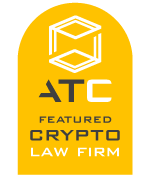
During your lifetime, you may have worked hard to save up and buy real estate, and like many people, you one day hope to leave it to your loved ones. Although there is no “gift tax” in Ontario, there are important income tax rules of which you should be aware that may result in a tax consequence depending on what and to whom you are gifting.
Whenever property is “gifted”, a capital gain or loss is calculated by determining the “Adjusted Cost Base”: calculating the value that the item is sold for minus how much you originally paid to acquire it.
Normally, if you gift real estate to any family member (related by blood, marriage, common-law partnership or adoption), you will be considered to have sold the land for fair market value, which is an estimate of what the gift would sell for in the market at the time it was gifted. If the fair market value is more than what you originally paid for the item, you will be considered to receive a capital gain which will be taxable.
On the receiving side, the receiver of your gift (the “Giftee”) also incurs a tax consequence. The Giftee will be considered to have acquired the gift at fair market value even if he or she paid nothing to acquire it. In the future, when the Giftee sells your gift, he or she may incur a capital gain depending on whether the value of the item has increased or decreased.
Although the tax consequence on gifted real estate may result in an onerous tax burden, there are several important exceptions to the general rule discussed above:
In some cases it may be beneficial to obtain a tax benefit by donating real estate. Special tax incentives may be available:
It is important to receive professional legal and accounting advice before gifting real property in order to ensure the maximum tax benefit of doing so, and to minimize your liabilities. Contact the legal professionals at Grinhaus Law Firm today to learn more about how you can structure your estate in the most tax-efficient manner so that your family, and not the government, will be able to enjoy the fruits of your life’s work.
PLEASE NOTE: THIS IS NOT INTENDED TO BE LEGAL ADVICE AND SHOULD NOT BE RELIED ON AS SUCH. IT IS IMPORTANT THAT YOU CONSULT WITH A LICENSED PROFESSIONAL.



